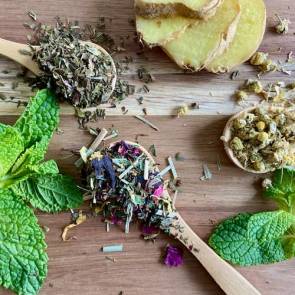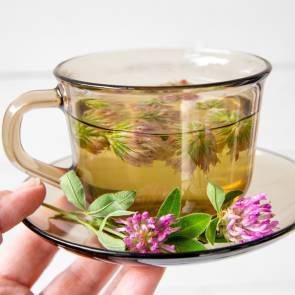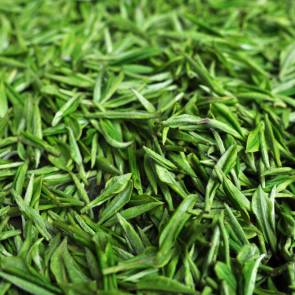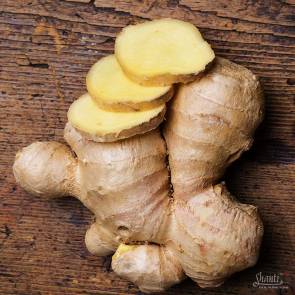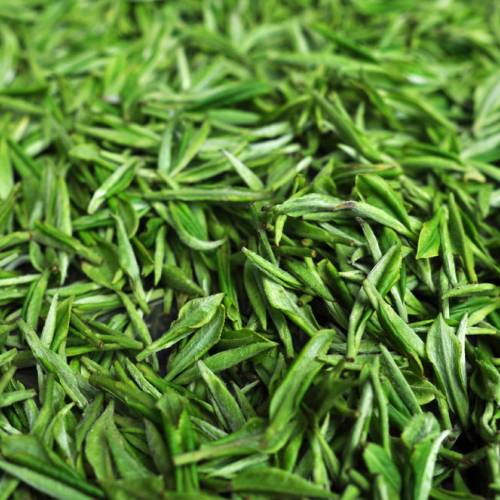
By now almost everyone is aware that green tea is good for your health – but why? Actually, there are health benefits to all teas, but green tea, white tea and lightly oxidized oolongs have more health promoting compounds within them than black tea. The more oxidized the tea leaf, the less antioxidants are present. If you are not a fan of the taste of green tea, but would still like to gain the health benefits associated with drinking tea, then a white tea might be more to your taste, or perhaps a green oolong like Iron Goddess.
Health Benefits of Green tea: EGCG
Epigallocathechin-Gallate is an antioxidant found in all teas, however the heavy oxidation of black teas damages a these catechin compounds. Actually, the oxidation process converts catechins into teaflavines and tearubigines, which contribute to the infusion color and flavor of black tea. Antioxidants are molecules that can help to mitigate the effect of damaging free radicals (unstable molecules that can cause cellular damage and accelerate aging). When people talk about the health benefits of green tea, they are primarily referring to EGCG.
Some of the benefits of EGCG:
- Protection against cancer: EGCG has potent effects on cancer cells, inhibiting their growth; Studies show that populations who consume high amounts of green tea have reduced rates of cancer overall
- Fat burning action: EGCG boosts the body’s fat metabolism, and can aid in weight loss
- Protection against osteoporosis: EGCG increases bone mineralization
- Reduced risk of cardiovascular disease: EGCG prevents the oxidization of LDL cholesterol (which has been associated heart disease)
- Reduces symptoms of rheumatoid arthritis: EGCG has been shown to reduce the inflammatory molecules that contribute to joint pain in RA
Although green tea is the most common form of tea associated with the health benefits of drinking tea, White tea actually contains higher levels of EGCG than all other teas.

Health Benefits of Green tea: L-Theanine
Green tea also contains a compound called l-theanine. We just recently blogged about the theanine content in green tea. Here are the health benefits of l-theanine in green tea:
- Promotes alpha-brain waves: the alpha brain wave state is associated with increase awareness, similar to that achieved by deep states of meditation
- Reduces stress and calms the mind
- Improves mental alertness
- Relieves anxiety by promoting the neurotransmitter GABA
- Increases learning ability and memory
The theanine content of green tea helps to balance out the stimulating effects of the caffeine, resulting in a more sustained form of energy.
Nutrient Profile of Green Tea
Green tea contains approximately 10-25mg of caffeine per cup, and 80-100mg polyphenols, of which 25-30mg are EGCG. By comparison, one cup of coffee contains approximately 80 – 100mg of caffeine. Black tea contains 50 – 100mg caffeine per cup, and white tea is around 5 – 20mg of caffeine per cup. The variance in the quantities are largely due to the type of tea being enjoyed.
Green tea also contains chlorophyll, the green pigment of plants, which are being recognized as superfoods. Chlorophyll is good for maintaining cellular integrity, tissue oxygenation, and the formation of immune and red blood cells. It also can act as a “chelator”, binding to heavy metals and therefore assisting to detoxify the body.
Besides the above specific health benefits, green tea is rich in various vitamins and minerals such as magnesium, potassium, calcium, B-vitamins, fluoride, and many others which are good for our overall health.
Beyond steeped green tea leaves, there is also powdered green tea, aka Matcha, to consider. The main difference between drinking matcha and drinking green tea is that in matcha, you are actually consuming the leaf itself, whereas in regular infused green tea you are simply steeping the leaves, and then removing them. The health benefits of matcha are therefore greater than green tea. Keep an eye out for our next profile blog on Matcha.



